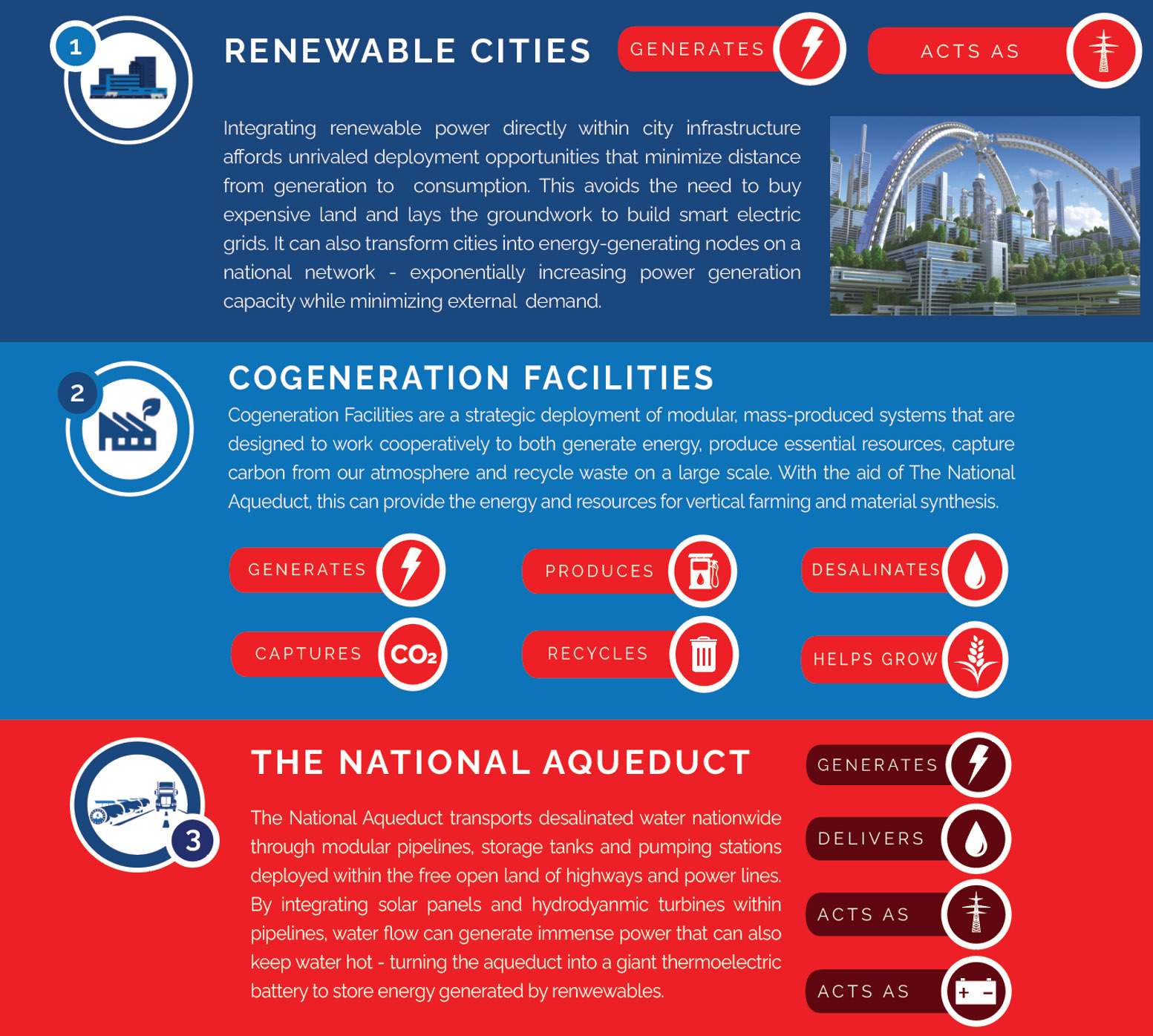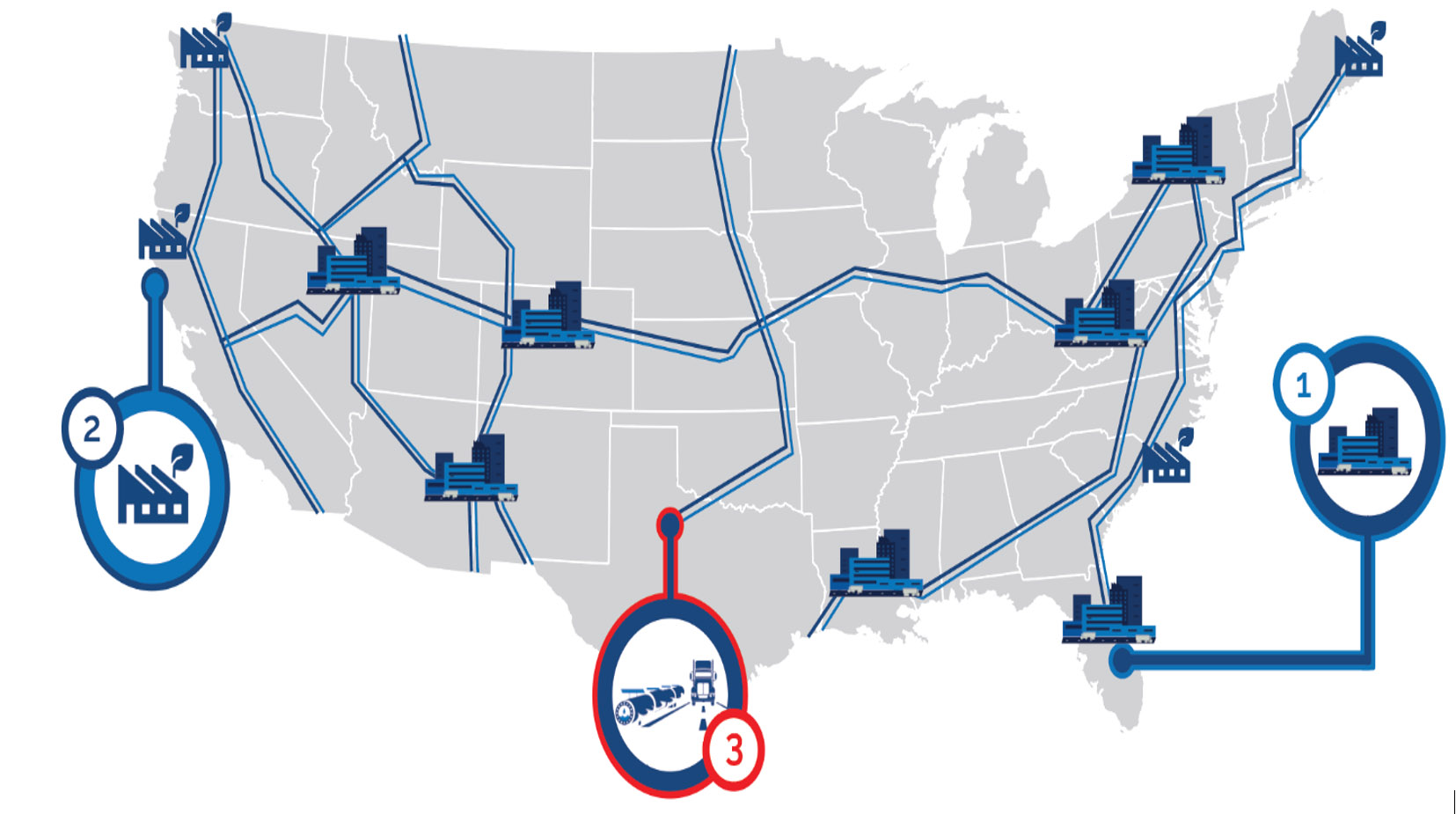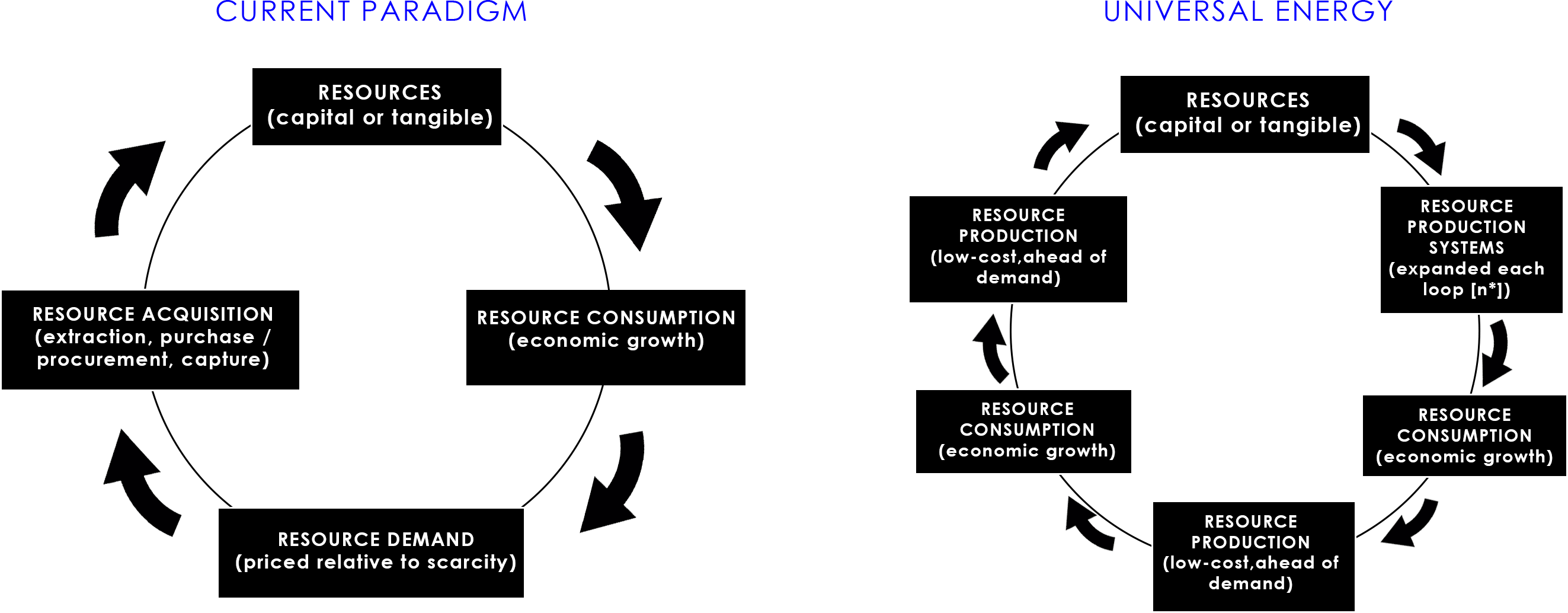Universal Energy is a framework for generating energy and producing resources. It outlines strategies to deploy the best energy technologies we have available into a smart, cooperative system that's designed to work together from the ground up. Its goal is to make energy inexpensive, abundant and carbon-neutral - allowing society to inexpensively produce vital resources to scale. The purpose of this goal is to achieve an effective means to both solve resource scarcity and climate change - while also affording our society with significantly expanded pathways to advance without sacrificing Earth's climate or greater ecology. The driving mindset is to build a means to sustainably produce abundance, and in doing so shift the social paradigm of resource acquisition that has dominated society since the dawn of time.
In operation, the Universal Energy framework is intended to produce five vital resources: electricity, fuel, water, food and building materials to effectively indefinite volumes – both as a dedicated effort and passively as a cogenerative byproduct of power generation. While the framework is designed to be modular and thus flexible in scale, the initial target seeks to expand our national energy generating capacity to meet 300% of annual consumption (12 trillion kilowatt-hours (kWh)) with at a baseline cost of 2 cents per kWh – an approximate reduction of 85% from a current average of 10.5 cents. While multiple systems work together to make this goal possible, the backbone of the framework is provided by three primary functions: renewable cities, cogeneration facilities and The National Aqueduct


